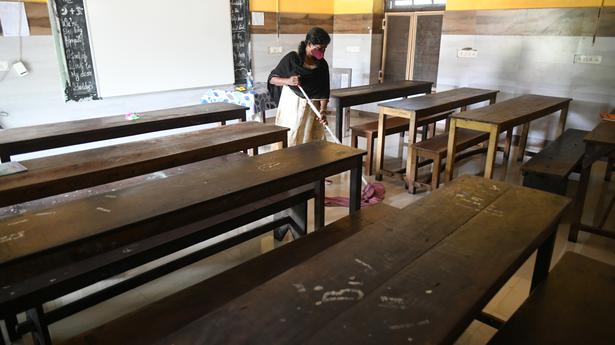
COVID-19 precautions for school reopening
The Hindu
Experts say chances of school-based clusters cannot be ruled out
School managements may work out a plan to tackle a possible COVID-19 outbreak as the new academic year begins on June 1, according to health experts.
Though the number of new cases has come down drastically, the chances of school-based clusters cannot be ruled out as it is for the first time that educational institutions will welcome students from the kindergarten to higher secondary sections after the long break induced by the pandemic crisis.
"Being prepared with a protocol in advance makes sure everything is taken care of properly. The managements could involve children in pandemic control measures rather than just giving instructions to them," said Rajeev Jayadevan, co-chairman of the Indian Medical Association's COVID-19 task force at the national level.
Suggesting that the school authorities need to keep the classrooms well-ventilated, Dr. Rajeev said the windows and doors should be kept open. “Let children have lunch in well-aired places. Frequently-touched surfaces (faucets, door handles) may be cleaned by a schedule. Obsessive surface cleaning or room fumigation may not be necessary,” he said.
M. Narayanan, former State president of Indian Academy of Paediatrics, recommended three key golden rules that should be complied with to prevent cluster formation in schools after reopening. “Wearing masks, improving the coverage of vaccination among children and abstaining from attending classes in the wake of having cold and cough could help to a great extent in checking cluster formation on campuses,” he said.
Stating that ensuring social distancing may not be practical as the offline sessions are resuming in a full-fledged manner, Dr. Narayanan recalled that a good percentage of children, who had got infected earlier, would have now developed immunity against the virus. “The scenario now is better compared to the earlier times as many children in the age bracket between 12-18 had received the vaccine,” he said.













